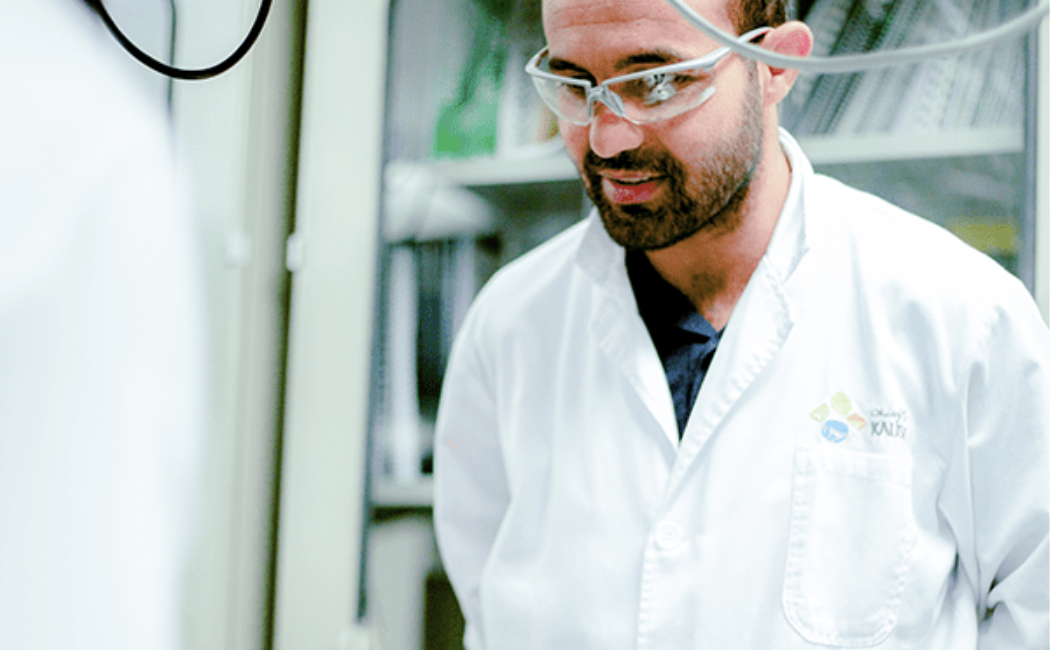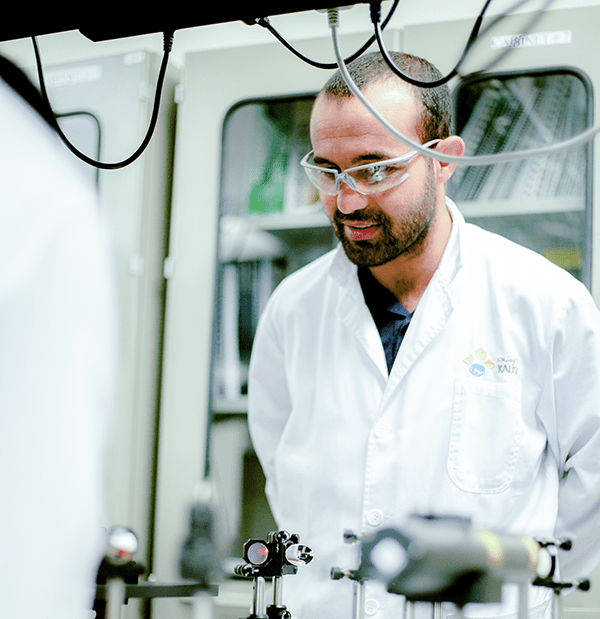


04 October, 2017


Photo by Raheena Abdurehim
Congratulations to Fethi Khaled, PhD Student in the mechanical engineering program, this months' recipient of the Physical Science and Engineering Division's Outstanding PhD Student Award.
Fethi works in the Chemical Kinetics & Laser Sensors Lab (which is affiliated with the Clean Combustion Research Center) under the supervision of Professor Aamir Farooq. He studies the science of combustion and investigates how fuels burn with the ultimate goal of developing high-efficiency and cleaner-burning fuels and engines.
Fethi grew up in a small village in southern Tunisia called Oued Esseder. From a very early age, he was fascinated by machines and engines and the science behind them. He attended the Polytechnic School of Tunisia where he obtained his bachelor's degree in mechanical engineering.
He first heard about KAUST in 2012 when Professor Slim Alouini visited the Polytechnic and gave a presentation of KAUST's ambitious plans to create an environment where excellence in curiosity-driven and goal-oriented research would thrive in a diverse and international community of faculty, students and staff. Fethi was preparing for his graduation and was so inspired by what he heard that he decided that KAUST was exactly where he needed to be to study fuels and engines. Professor Alouini referred him to Professor Aamir Farooq who invited him to come to KAUST on a four-month internship. He was so impressed with the facilities and opportunities available that he decided to continue his graduate studies at KAUST.
Initially, he missed his family and friends, but he found KAUST so multinational and welcoming that he quickly settled in and felt very much at home. "KAUST offers all kinds of services such as free transportation, facilitated government affairs, well- organized public events and many more activities that help so much with facing the challenge of moving abroad for the first time" he said. He is very happy with his decision to come to KAUST. He feels that he has studied with the best professors and worked in the best labs he could ever have imagined. This has meant that his research and learning process has been amply supported.
One of the most rewarding aspects of his studies has been the opportunity to gain experience and knowledge in so many things. "The environment at KAUST is so active, enthusiastic and fast moving that I have had opportunities to be involved in many curious and optimistic projects rather than limiting myself to one PhD project 'title'," he said.
He currently has published twenty peer-reviewed papers, several in high-impact scholarly journals and six as first author. At the International Combustion Symposium in 2016, Fethi had three papers accepted (two as first author).
Fethi credits Professor Aamir Farooq as being the perfect mentor on his journey at KAUST, always available to listen to his ideas and give advice. He has found people at KAUST, from fellow students to postdocs and staff, very helpful.
His advice for students who are considering KAUST is not to speculate too much about what it is like: "If you want a place where you can acquire solid knowledge, perform excellent research and work with professors who excel in their fields, while receiving maximum support to achieve your research goals, then KAUST is the right choice for you".
Fethi advises students wishing to publish in high-impact journals that it is not always the ingenious idea that attracts editors. Sometimes, it is the well-posed problem, the well-explained solution and the well-expressed application. He suggests discussing how the work can be applied, improved and built upon with faculty members. He says, "if you are an experimentalist, you can be sure that at KAUST you have access to state-of the-art equipment rarely seen all in one place. You have the very best opportunity to reach new limits in whatever idea you have. So just jump in and try it out."
"Students who are still at the beginning of their PhD may get to the stage where they feel discouraged and that they could be a greater influence and work on greater causes in some other way. This is not actually a bad thing, as it means that you are beginning to look for better ways and that you are starting to realize that great causes require you to work harder and to broaden your inquiry. So keep it up, the PhD Student who dares to take the challenge and delve deeper into the science, will achieve more than anyone else has achieved before you" he continued.
Read this news article in pse.kaust.edu.sa where it was originally published.